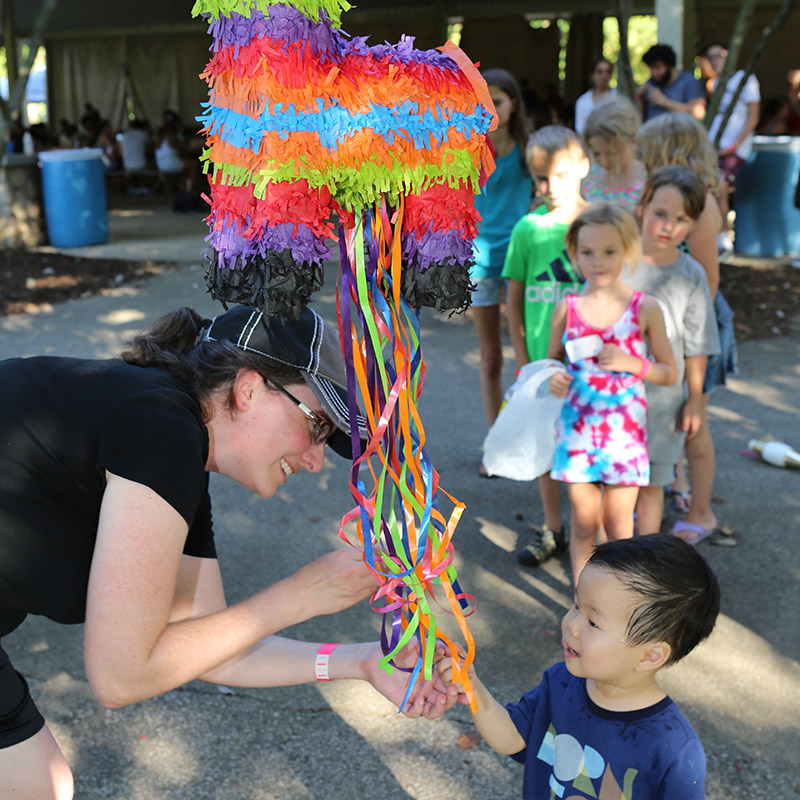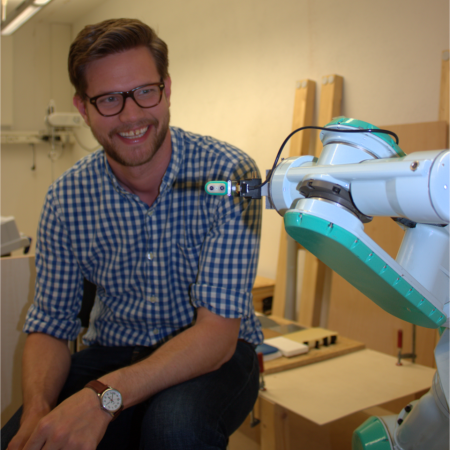Microsystems-inspired robotics
Abstract: The ability to manufacture micro-scale sensors and actuators has inspired the robotics community for over 30 years. There have been huge success stories; MEMS inertial sensors have enabled an entire market of low-cost, small UAVs. However, the promise of ant-scale robots has largely failed. Ants can move high speeds on surfaces from picnic tables [...]
Robotics Institute Picnic
Carnegie Mellon University
Self-Supervised Learning on Mobile Robots Using Acoustics, Vibration, and Visual Models to Build Rich Semantic Terrain Maps
Abstract: Humans and robots would benefit from having rich semantic maps of the terrain in which they operate. Mobile robots equipped with sensors and perception software could build such maps as they navigate through a new environment. This information could then be used by humans or robots for better localization and path planning, as well [...]
Carnegie Mellon University
Resource-Constrained State Estimation with Multi-Modal Sensing
Abstract: Accurate and reliable state estimation is essential for safe mobile robot operation in real-world environments because ego-motion estimates are required by many critical autonomy functions such as control, planning, and mapping. Computing accurate state estimates depends on the physical characteristics of the environment, the selection of suitable sensors to capture that information, and the [...]
Robotic Grippers for Planetary Applications
Abstract: The previous generation of NASA missions to the outer solar system discovered salt water oceans on Europa and Enceladus, each with more liquid water than Earth – compelling targets to look for extraterrestrial life. Closer to home, JAXA and NASA have imaged sky-light entrances to lava tube caves on the Moon more than 100 [...]
Some New Designs of Convolutional and Recurrent Networks
Abstract: Convolutional networks (CNNs) and recurrent networks have driven the great engineering success of deep learning in recent years. However, as academics, we still wonder whether they are indeed the ultimate models of choice. Especially, CNNs seem unable to characterize predictive uncertainty, and they are highly dependent on small filters on small, rectangular neighborhoods. On [...]
Improving Multi-fingered Robot Manipulation by Unifying Learning and Planning
Abstract: Multi-fingered hands offer autonomous robots increased dexterity, versatility, and stability over simple two-fingered grippers. Naturally, this increased ability comes with increased complexity in planning and executing manipulation actions. As such, I propose combining model-based planning with learned components to improve over purely data-driven or purely-model based approaches to manipulation. This talk examines multi-fingered autonomous [...]
Language and Interaction in Minecraft
Abstract: I will discuss a research program aimed at building a Minecraft assistant, in order to facilitate the study of agents that can complete tasks specified by dialogue, and eventually, to learn from dialogue interactions. I will describe the tools and platform we have built allowing players to interact with the agents and to record those interactions, and [...]
Carnegie Mellon University
Scaling Up Deep Learning with Model and Algorithm Awareness
Abstract: In recent years, the pace of innovations in the fields of deep learning has accelerated. To cope with the sheer computational complexity of training large ML models on large datasets, researchers in the systems and ML communities have created software systems that parallelize training algorithms over multiple CPUs or GPUs (multi-device parallelism), or even [...]








